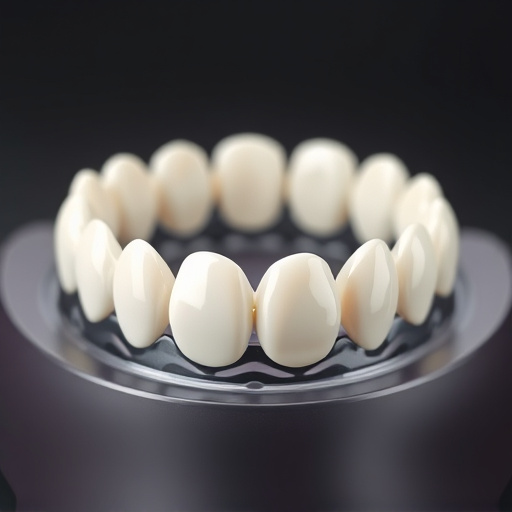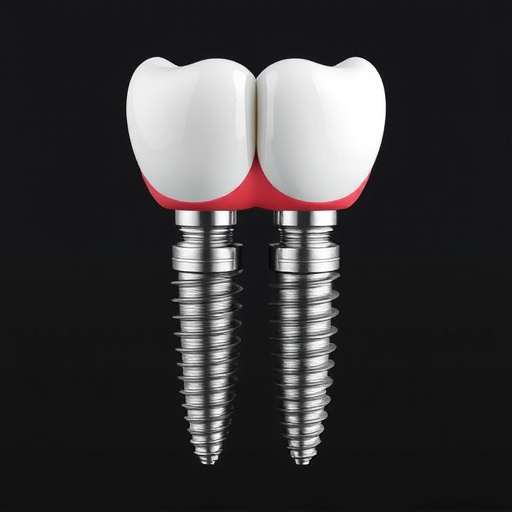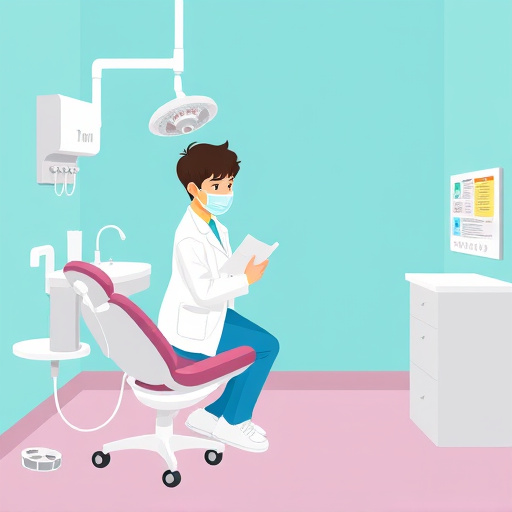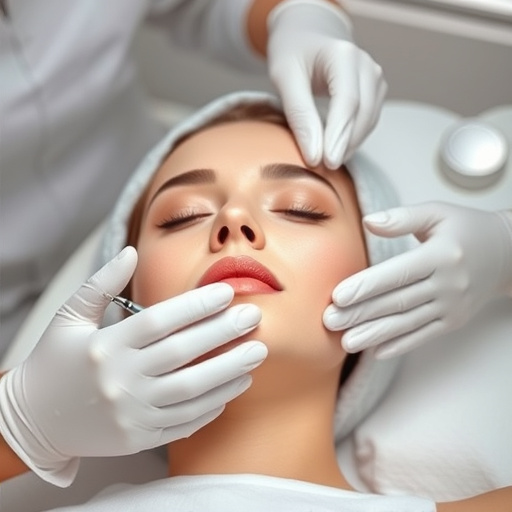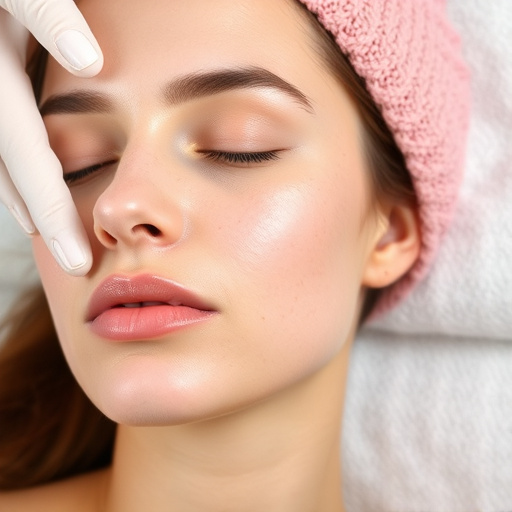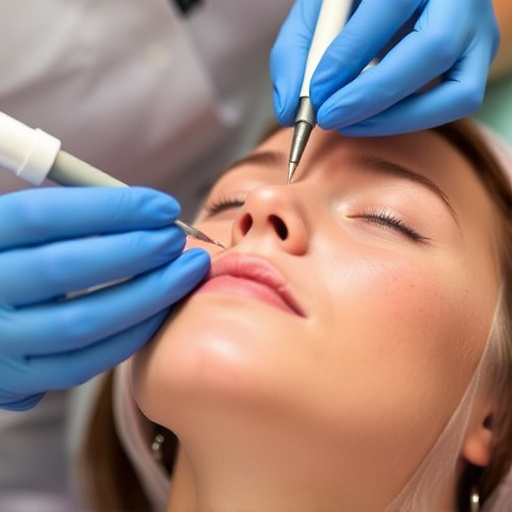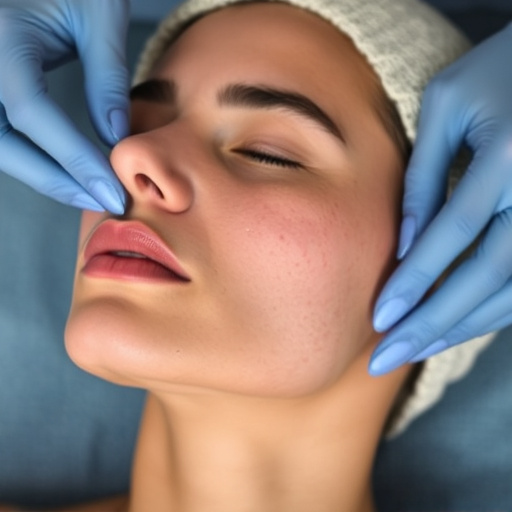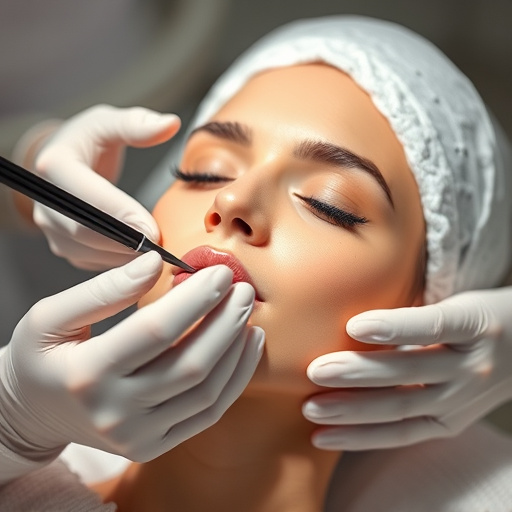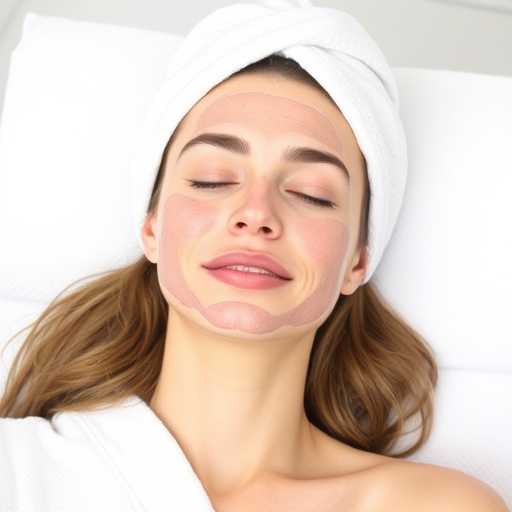Sleep is crucial for wrinkle reduction as it boosts collagen production and repairs skin damage. Stress hormones like cortisol accelerate wrinkles through HPA axis activation. Personalized skincare routines combining quality sleep, facials, and anti-aging products effectively combat these issues for a radiant complexion, enhancing the results of any wrinkle reduction treatment.
“Unravel the intricate connection between sleep, stress, and wrinkles—a trio that can significantly impact your skin’s health. This article explores how quality rest and stress management are essential in preventing and reducing wrinkles. We delve into the science behind sleep’s role in skin repair and its defense against stress hormones that accelerate aging. Discover effective strategies for wrinkle reduction treatment, offering insights to enhance your skincare routine and embrace a radiant complexion.”
- Understanding Sleep's Role in Skin Health
- Stress Hormones and Wrinkle Progression
- Effective Strategies for Wrinkle Reduction Treatment
Understanding Sleep's Role in Skin Health
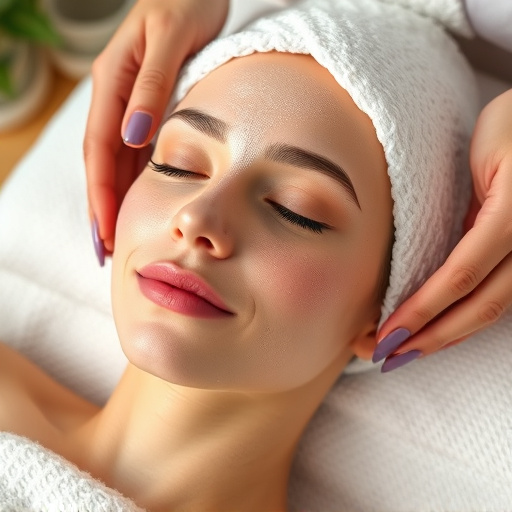
Sleep plays a vital role in maintaining optimal skin health, often overlooked but just as crucial as any skincare routine. During sleep, our bodies undergo various restorative processes that are essential for minimizing wrinkle formation and achieving a youthful complexion. At night, while we rest, our skin goes through a series of repairs and regenerations. This is when collagen production increases, helping to firm and smooth out fine lines and wrinkles. Adequate sleep also supports the body’s natural inflammation reduction, which can prevent damage caused by environmental factors that contribute to premature aging.
Skincare professionals emphasize the impact of consistent, quality sleep on achieving effective wrinkle reduction treatments. Customized facials and other therapeutic procedures can be optimized when combined with a healthy sleep routine. Moreover, prioritizing skin health through adequate rest allows for better absorption of nutrients from topical anti-aging products, enhancing their overall effectiveness in body contouring treatments.
Stress Hormones and Wrinkle Progression
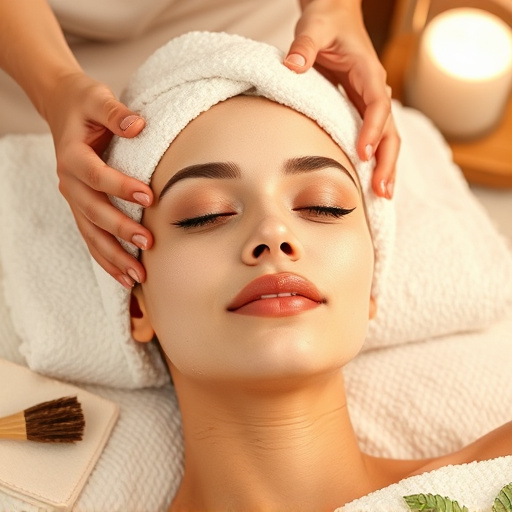
Stress hormones play a significant role in wrinkle formation and progression. When our bodies experience stress, whether it’s acute or chronic, the hypothalamic-pituitary-adrenal (HPA) axis is activated, releasing cortisol—a key stress hormone. This hormonal response triggers various physiological changes, including increased blood flow to muscles and skin, heightened glucose levels, and elevated heart rate. While these reactions are beneficial in short bursts for “fight or flight” scenarios, prolonged activation can lead to detrimental effects on the skin.
Over time, high cortisol levels contribute to collagen degradation and inflammation, both of which play a crucial role in wrinkle development. Collagen is a structural protein that provides skin elasticity and strength; when it breaks down, wrinkles form. Additionally, chronic stress may influence lifestyle choices, such as poor diet, inadequate sleep, and excessive smoking, all of which can exacerbate wrinkle reduction treatment challenges. Personalized skincare regimens and targeted facial treatments, including laser hair removal techniques, can help mitigate these effects, promoting healthier, more youthful-looking skin.
Effective Strategies for Wrinkle Reduction Treatment
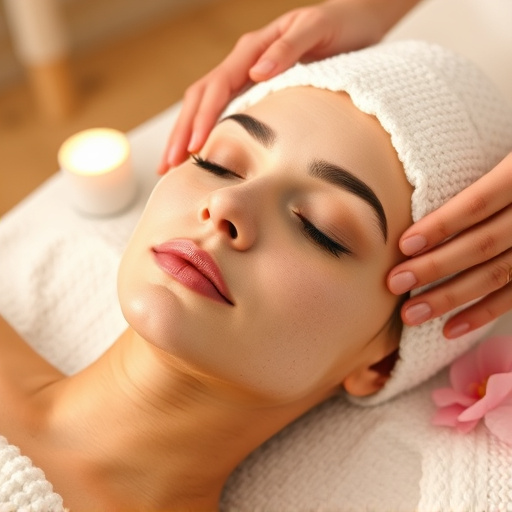
While genetics play a role in wrinkle formation, lifestyle choices and daily habits can significantly impact skin aging. One of the most effective strategies for wrinkle reduction treatment is consistent and adequate sleep. During rest, our bodies produce essential hormones that boost collagen synthesis, helping to maintain skin elasticity and resilience. This process is crucial in preventing fine lines and wrinkles from developing prematurely.
Additionally, incorporating hydrating facials and customized facial treatments into your skincare routine can deliver intense moisture to the skin, plumping up delicate areas and reducing the appearance of existing wrinkles. Personalized skincare, tailored to your unique skin type and concerns, ensures that you’re using the right ingredients at the right concentrations, further enhancing wrinkle reduction efforts.
Sleep plays a pivotal role in skin health, while stress hormones can accelerate wrinkle formation. By understanding these links, we can employ effective strategies for wrinkle reduction treatment. Incorporating quality sleep and managing stress through proven methods not only enhances overall well-being but also contributes to maintaining a youthful complexion. For optimal results, consider a holistic approach combining healthy habits with advanced skincare routines.
